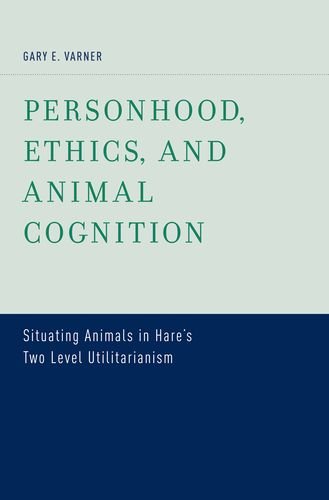Product desciption
Personhood Ethics And Animal Cognition Situating Animals In Hares Two Level Utilitarianism Gary E Varner by Gary E. Varner 9780199758784, 0199758786 instant download after payment.
R.M. Hare was one of the most important ethical theorists of the 20th century, and one of his graduate students, Peter Singer, became famous for his writings on animals and personhood. Singer now says that he endorses Hare's "two-level utilitarianism," and he has invoked the theory's distinction between "critical thinking" and thinking in terms of "intuitive level rules" in response to certain objections to his conclusions on several issues. Hare, however, never published a systematic treatment of how his theory applies to issues in animal ethics, and he avoided the concept of "personhood."
Gary Varner here fills this gap by defending the moral legitimacy of distinguishing among "persons," "near-persons," and "the merely sentient" within Harean two-level utilitarianism. He explores the implications of this distinction by applying the resulting ethical system to our treatment of animals, and shows how the results contrast with the more abolitionist conclusions reached by Singer on the same issues. In the process, he presents a new philosophical defense of two-level utilitarianism and its metaethical foundation (universal prescriptivism), and he significantly expands Hare's account of how "intuitive level rules" function in moral thinking, based on recent empirical research. The book also draws heavily on empirical research on consciousness and cognition in non-human animals as a way of approaching the question of which animals, if any, are "persons," or at least "near-persons."
Philosophers, including those interested in utilitarianism in general or Hare in particular, as well as others interested in animal ethics or the debate over personhood, will find Varner's argument of great interest.
"Professor Varner's earlier work, In Nature's Interests, is a very fine book. It has achieved a high level of respect from those working in the field, and is often seen as having set a new standard of debate in environmental ethics. That means that a new book by Professor Varner will be received with considerable interest. Varner draws on extensive recent empirical research regarding the degree to which animals are self-conscious and uses this information as the basis for the most serious discussion I have yet seen of whether any nonhuman animals can be considered 'persons'. There is, to my knowledge, no other book that goes into these issues anywhere near as deeply, in the context of assessing their significance for the normative issues of the wrongness of taking life, or other issues relating to ethical decision-making regarding our treatment of animals and some humans. I have no doubt that this book will, like In Nature's Interests, be seen as making an important contribution to the topics it covers." - Peter Singer, University Center for Human Values, Princeton University


